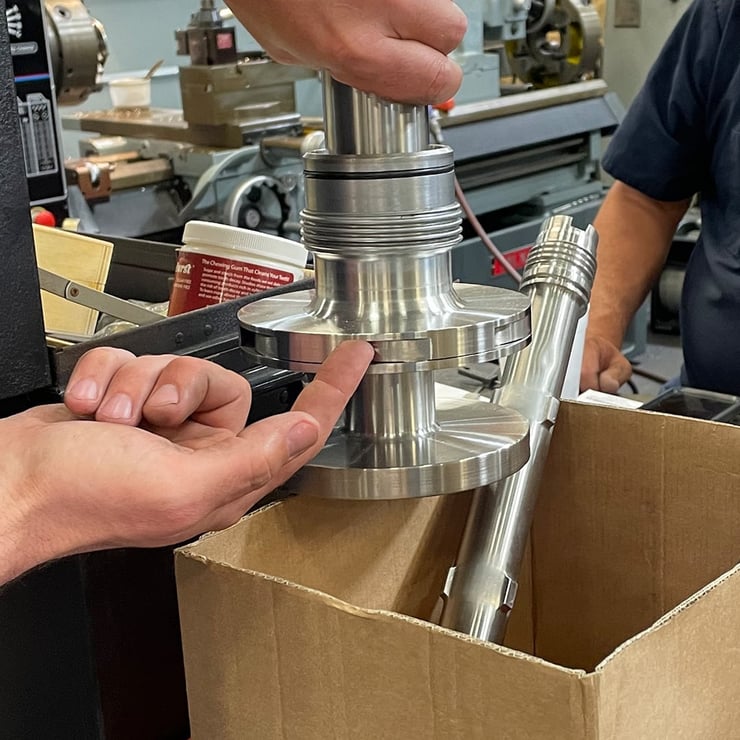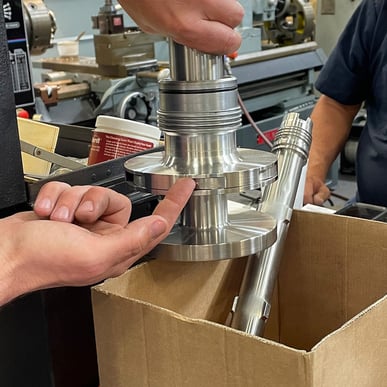Chances are you won’t know that your centrifuge pump needs repair until you have to stop your production line. Unfortunately, a pump is no small purchase, with some plants spending anywhere from $25–$60k on these pivotal pieces of equipment.
When it comes time for your plant to swap out a pump, it’s important to know that you have options. In many instances, your existing pump can be repaired for significantly less than it would cost to buy new.
So, is repair or replacement a better choice for your plant? Let’s explore.
What is the average life of a centrifuge pump?
The life of a centrifuge pump is dependent on many factors — especially the corrosion level of your product; however, it’s safe to say that a typical pump will last you about 10 years, so long as there is no oxygen in the liquid phase, the pump is kept submerged, and the pump isn’t over-pressurize. We’ve seen pumps last even longer than 10 years with regular maintenance.

What causes a pump to split?
Many times, the pumps that come to us split have been over-pressurized. In fact, we’ve seen brand-new pumps come apart in a three-week period because of excess pressure.
Every centrifuge pump has a maximum PSI. When too much pressure is applied, the reinforcement pins begin to give out, allowing the pump to begin splitting. Many times, this excess pressure occurs during a CIP process when a valve is closed, forcing the pressure toward the pump.
While we can often salvage a splitting pump, there are times when the pump is too far gone to reasonably repair. (For example, if a centrifuge pump is nearly fully split or deeply pitted.) In these cases, it is often in the best interest of the plant to buy new, rather than to attempt to repair.
Why do pumps require professional repair?
We’ve seen our fair share of poorly repaired pumps over the years, many of which were welded back together improperly. While in-house quick repairs might be able to buy your plant some time, they won’t be able to effectively separate your product — and in the long run, might do more harm than good.
Get a pump repaired in days
Unlike OEMs, who often have such high demand that it takes a month (or more) to repair and return a pump, the Separators team can turn around a set of pumps in just a few days. Plus, we’ll take care of the logistics to get your pumps to our field shop and safely back to your plant.
In the event that your pump is going to take longer than a day to repair, or you can’t afford any downtime, we have pumps with feed tubes that we can loan you so that you can maintain your production volume.
Reinforce your pumps to be stronger and more dependable
All pump repairs are completed by machinists in our Indianapolis shop. With our specialized equipment and meticulous attention to detail, our repairs improve pumps to a like-new state that is above and beyond the quality of new OEM options.
When you receive your repaired pump, you’ll notice we’ve re-worked your pump to have:
- Deeper vane rivets
- A more durable threaded pin
These improvements help improve the longevity of your pump and improve your separation process, allowing you to produce top-quality products.
Need pump repair?
It’s never a bad time to check in on the health of your centrifuge and your pumps before equipment failure. Find time to schedule service today.

